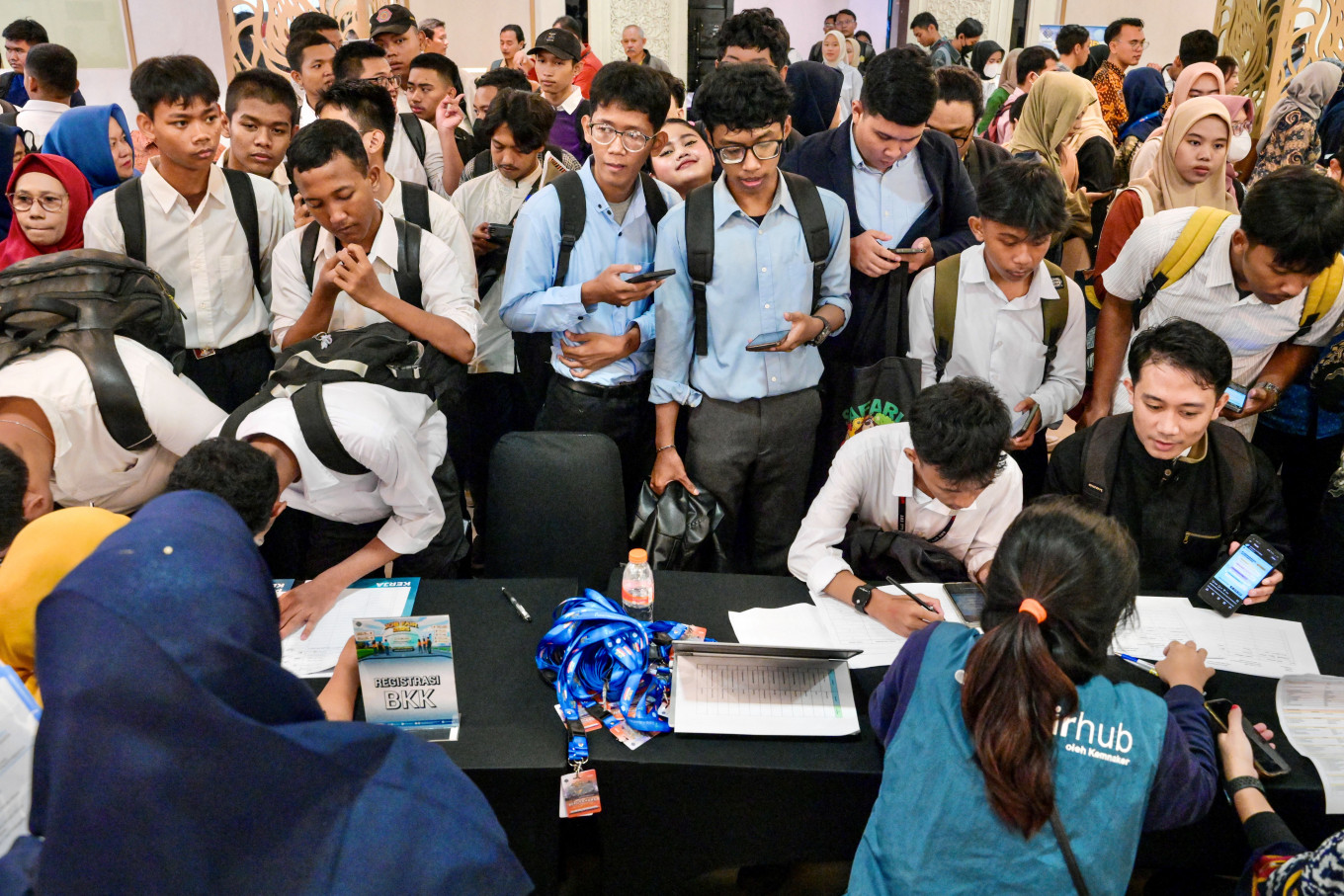Popular Reads
Top Results
Can't find what you're looking for?
View all search resultsPopular Reads
Top Results
Can't find what you're looking for?
View all search resultsIndonesia: Seizing the demographic bonus amid a shrinking middle class
The trending #KaburAjaDulu hashtag indicates that Indonesia needs to deploy targeted action in professional education, job creation and women's economic empowerment to counter the phenomenon of a shrinking middle class and take full advantage of its demographic dividend.
Change text size
Gift Premium Articles
to Anyone
I
recently spoke to a ride-hailing driver in Jakarta with a degree in economics. He smiled when I asked why he was driving. “Pak [Mister], there are too many of us looking for the same jobs,” he said. “At least with this, I eat every day.”
That conversation reflects Indonesia’s economic puzzle: a young, ambitious population overflowing with potential, but a labor market that hasn’t caught up.
Indonesia is currently in the midst of a demographic sweet spot: 70 percent of its population is of working age, according to Statistics Indonesia (BPS) data. Economists call this a "demographic dividend"; that is, when a country has more workers than dependents, economic growth can accelerate. However, this dividend must be earned.
Despite its abundance of resources, Indonesia’s trajectory is increasingly uncertain. While the potential for 8 percent annual growth has been suggested, many economists see a more modest 5 percent as likely.
The key question is: Can Indonesia unlock the full promise of its demographic advantage, or will structural weaknesses hold it back?
At the heart of this dilemma is the shrinking middle class. Once hailed as the engine of Indonesia’s consumption-driven economy, this group is showing signs of strain. This segment comprises over 66 percent of the population and contributes to more than 81 percent of national consumption, according to BPS.
The World Bank notes that middle-class consumption fueled 12 percent growth in Indonesia's economy and accounts for over 50 percent of national tax revenue. However, studies by the National Research and Innovation Agency (BRIN) in 2024 revealed a concerning trend: Millions have fallen out of the middle-income bracket since 2018.



















